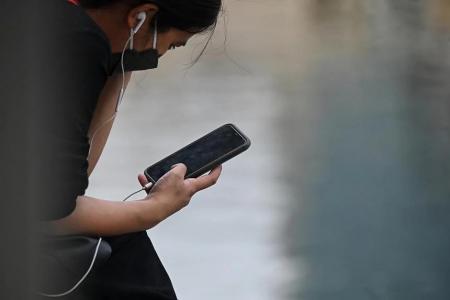New For.sg link to be used by public hospitals when sending e-mails, SMSes
In an effort to combat scammers, public health institutions may include a new link in the e-mail and text messages they send out to members of the public.
Instead of shortened links like bit.ly or .com links, e-mails and SMSes may include the For.sg domain.
For example, to register for the Healthier SG programme engagement session with Tan Tock Seng Hospital, residents of central Singapore have to click the link For.sg/centralhsg.
The Healthier SG initiative was launched earlier this year to address the challenges of an ageing population.
Users who click the link will be taken to a page where its authenticity will be checked before they can proceed further.
It works in a similar way to the Go.gov.sg link, which public officers use to assure the public that the link is not fake.
In this case, an e-mail about an application for a passport could include the link Go.gov.sg/passport.
For.sg has been made available to all 33 public healthcare institutions from July 6, including all public hospitals in Singapore.
Open Government Products (OGP), which developed For.sg, said in phishing scams, victims are fooled into clicking fake links.
These links in SMSes or e-mails are made to look like the real thing.
"As many public healthcare institutions rely on SMSes with links as the main form of communication with members of public, these are methods in which scammers have been known to take advantage of unsuspecting members of public," said the OGP, which is part of the Government Technology Agency - a statutory board under the Prime Minister's Office.
The OGP team collaborated with the Ministry of Health (MOH) to launch For.sg.
The spike in phishing scams in recent years prompted the development of such links, which are also known as shorteners.
OGP said when members of the public click the For.sg links, they are also reminded to guard against phishing scams.
"This builds public awareness against clicking into suspicious and unverified links and in turn, creates a more digitally educated and savvy nation," it added.
In January last year, MOH had warned of scammers sending SMSes pretending to be health officials.
These text messages claimed to offer vaccination appointments, directing victims to click on malicious links.
MOH had warned members of the public to be wary, and to only click on links that could be verified.
For.sg and Go.gov.sg are examples of verified links.
Healthcare professionals with e-mail domains from any of the 33 public healthcare institutions can now log in with their e-mails and immediately create shortened links with the For.sg domain.
The links also allow for safe file sharing and analytics, said OGP.
Get The New Paper on your phone with the free TNP app. Download from the Apple App Store or Google Play Store now



